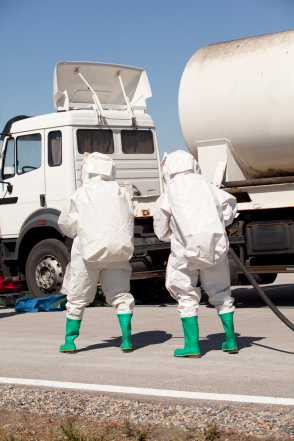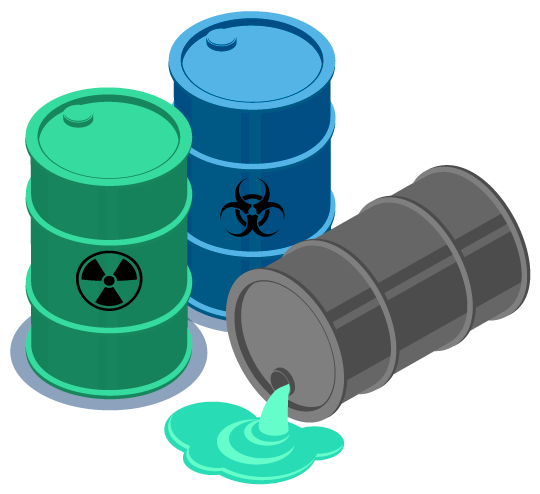Safe and Sustainable Liquid Waste Disposal: Your Go-To Company
Wiki Article
Understanding the Comprehensive Process of Fluid Garbage Disposal: Ideal Practices and Environmental Impact Considerations
The management of liquid waste disposal is a diverse concern that needs a detailed understanding of various best methods and their connected ecological influences. From the types of liquid waste created to the techniques employed for collection, treatment, and final disposal, each step plays an essential duty in safeguarding communities and public wellness.Kinds Of Liquid Waste
Comprehending the different sorts of fluid waste is necessary for reliable management and disposal practices. Fluid waste can be generally classified into a number of types, each calling for one-of-a-kind handling and therapy methods.Industrial liquid waste commonly consists of harmful products, including heavy steels, solvents, and chemicals, created during making procedures. These wastes demand strict governing compliance to protect human health and wellness and the setting. Residential fluid waste largely refers to wastewater produced from houses, consisting of sewage and greywater, which, although much less harmful, can still pose substantial risks if poorly handled.
Agricultural fluid waste, including drainage from farms, often includes plant foods and pesticides that can result in environmental deterioration if not dealt with effectively. Clinical liquid waste, generated from health care centers, consists of polluted liquids such as physical liquids and chemicals, calling for specialized disposal techniques to stop infection and environmental contamination.
Finally, oil and grease waste, generally produced by dining establishments and automobile markets, can trigger severe obstructions in sewage system systems if not taken care of properly. Comprehending these classifications promotes targeted approaches for treatment, compliance with laws, and efficient disposal approaches, ultimately promoting environmental sustainability and public health and wellness safety and security.

Collection Methods
Effective collection approaches are critical for the appropriate management of fluid waste, making certain that it is collected securely and effectively prior to treatment or disposal. Different strategies are utilized depending upon the sort of liquid waste produced, the volume, and the particular attributes of the waste.One typical method is using committed collection storage tanks or sumps, which are made to capture fluid waste at the resource. These systems typically integrate pumps that facilitate the transfer of waste to bigger storage space containers or therapy facilities. Furthermore, mobile collection devices furnished with vacuum cleaner modern technology are utilized in scenarios where waste is produced periodically or in hard-to-reach areas.
For commercial setups, closed-loop systems can successfully minimize spills and leakages, enabling the recuperation and reuse of liquid waste. It is also crucial to educate employees on correct collection procedures to mitigate dangers linked with dangerous materials.
Additionally, implementing routine maintenance schedules for collection equipment makes certain ideal efficiency and safety and security. The integration of advanced monitoring systems can enhance collection effectiveness by offering real-time data on waste degrees and possible threats. Overall, effective collection techniques are fundamental to lasting fluid waste monitoring practices.
Treatment Procedures
Therapy procedures play an important duty in the management of liquid waste, transforming potentially harmful materials into recyclable sources or secure effluents - liquid waste disposal. These processes can be broadly categorized into physical, chemical, and biological approaches, each customized to address details pollutants present in the waste streamPhysical treatment methods, such as sedimentation and filtration, work by removing suspended solids and particle issue. These techniques are usually the initial step in the therapy chain, successfully decreasing the load on subsequent processes. Chemical treatments involve the usage of reagents to counteract dangerous substances, speed up hefty metals, or oxidize organic toxins, therefore improving the safety of the effluent.
Biological therapy procedures, including turned on sludge systems and anaerobic digestion, profit from the all-natural abilities of bacteria to deteriorate organic issue. These approaches are especially effective for wastewater containing biodegradable pollutants. Advanced therapy technologies, such as membrane layer filtration and progressed oxidation procedures, are increasingly used to attain higher degrees of filtration.
Incorporating a combination of these therapy techniques not just guarantees conformity with governing criteria yet additionally promotes environmental sustainability by recuperating valuable resources from fluid waste.
Disposal Options
How can organizations ensure the liable and safe disposal of fluid waste? Efficient disposal options are vital for safeguarding public wellness and the setting. The primary approaches consist of land treatment, disposal, and incineration followed by discharge into metropolitan wastewater systems.Land disposal involves the mindful containment of fluid waste in marked garbage dumps, ensuring that it does not leach into bordering dirt or water. Incineration, on the various other hand, topics fluid waste to heats, transforming it into ash and gases, which require correct purification to decrease exhausts. This method is appropriate for dangerous wastes that can not be dealt with through standard methods.
In instances where liquid waste can be dealt with, organizations might choose chemical or organic therapy procedures to neutralize hazardous elements before discharging the dealt with effluent into local systems. This path typically aligns with regulatory requirements, making certain that the effluent satisfies safety and security criteria.
Eventually, companies have to conduct thorough evaluations of each disposal alternative to establish its viability, considering elements such as waste structure, governing conformity, and possible dangers to health and wellness and the setting. By choosing suitable disposal methods, organizations can add to a responsible waste administration strategy.
Ecological Influence
The ecological effect of fluid waste disposal is an important consideration for organizations looking for to decrease their eco-friendly impact. In addition, the discharge of neglected or improperly dealt with waste into surface waters can result in eutrophication, leading to oxygen deficiency and the succeeding death of fish and other microorganisms.
To reduce these impacts, companies need to embrace ideal techniques such as executing rigorous waste treatment procedures, advertising recycling and reuse, and sticking to governing standards. By taking a positive strategy to liquid waste administration, entities can considerably minimize their environmental footprint while supporting sustainable advancement objectives. Inevitably, a thorough understanding of the ecological influences connected with fluid garbage disposal is vital for informed decision-making and accountable stewardship of natural deposits.
Verdict
Effective monitoring of fluid waste is critical for safeguarding environmental honesty and public health. Eventually, a detailed understanding of fluid waste disposal not just minimizes ecological impacts however also fosters a commitment to accountable source administration and ecological stewardship.The monitoring of liquid waste disposal is a diverse issue that requires an extensive understanding of various best methods and their connected ecological influences. From the types of fluid waste created to the methods used for collection, therapy, and last disposal, each step plays an essential duty in safeguarding ecosystems and public wellness.The environmental impact of fluid waste disposal is an important consideration for companies seeking to decrease their eco-friendly impact. Eventually, a comprehensive understanding of the ecological effects connected with liquid waste disposal is important for notified decision-making and accountable stewardship of natural sources.
Inevitably, a thorough understanding of fluid waste disposal not just mitigates ecological influences however likewise fosters industrial wastewater treatment solutions a commitment to accountable source administration and environmental stewardship.
Report this wiki page